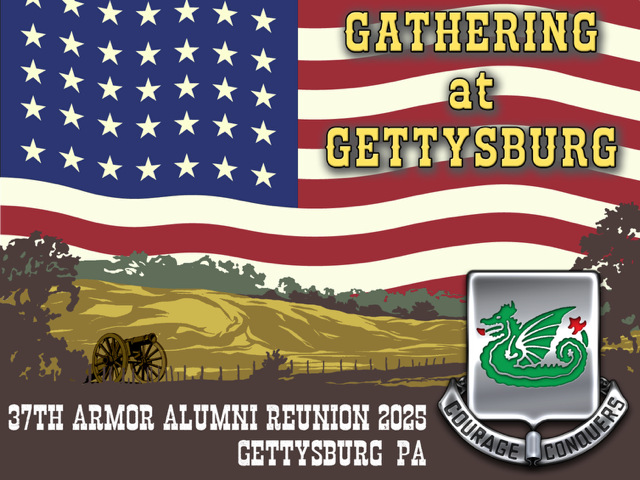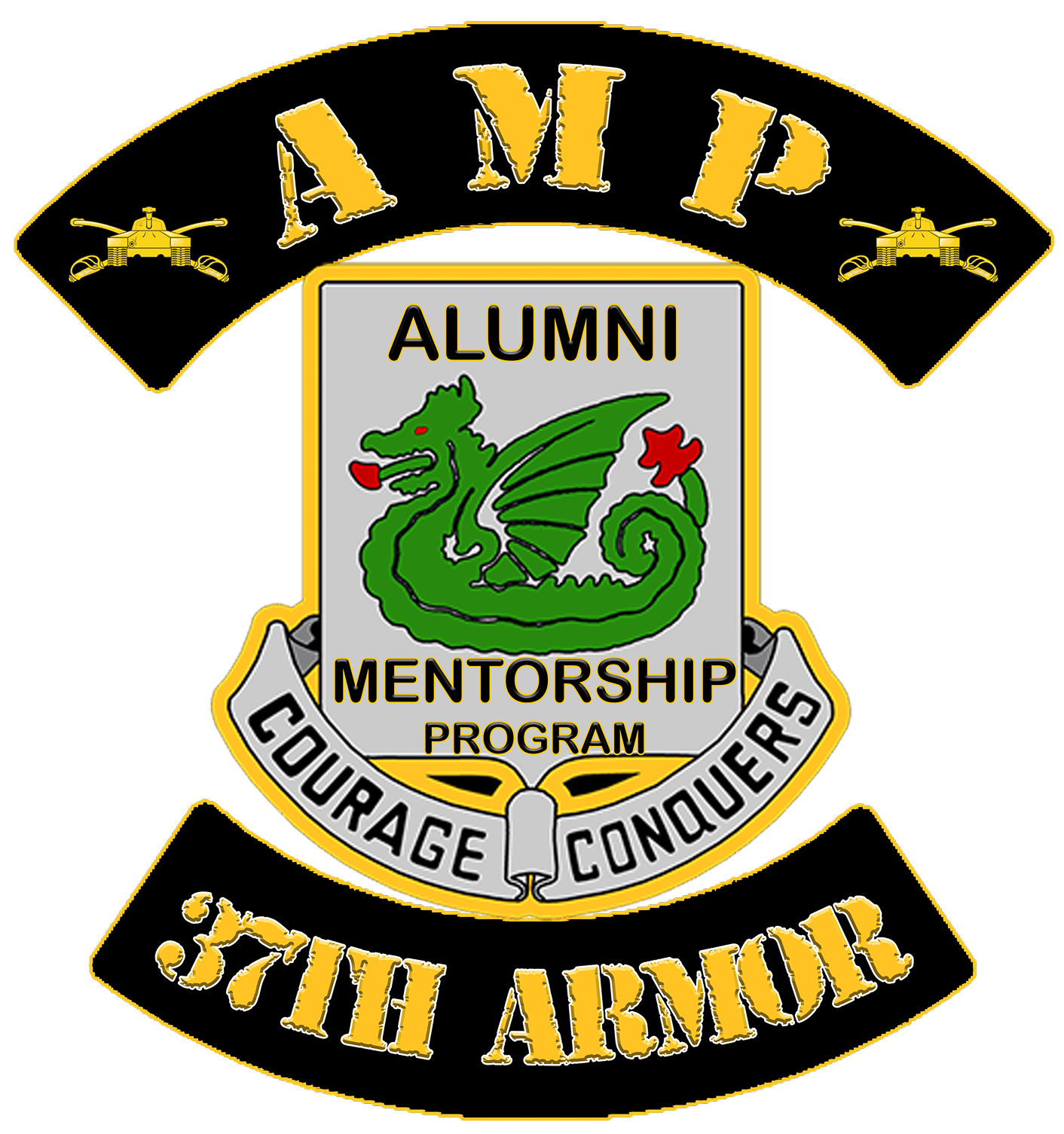Uniting 37th Armor Veterans
For all Veterans who ever served in the
37th Tank Battalion
or Battalions of the 37th Armor Regiment:
1-37 Armor, 2-37 Armor, 3-37 Armor
and 4-37 Armor.
From Germany to Fort Riley…
We made the difference. Courage Conquers!
Register Now
Registration Closes In
Join us October 16-19, for this year's reunion with the 37th Armor Alumni Association, where camaraderie and history come to life. Discover the detailed event itinerary, including a range of exciting excursion opportunities designed to reconnect you with fellow veterans and their families. We’ve also curated comfortable accommodation options to ensure your stay is enjoyable. Don’t miss this chance to relive memories and strengthen the bonds forged in service—learn more about how you can be a part of this special gathering!
37th Armor Monument
Join us in leaving a Legacy for the 37th Regiment at the Patton Park Memorial Trail.

Upcoming Events
Alumni Mentorship Program
Mission
Establish the 37th Alumni Mentorship Program to provide ongoing transition and career support to all 37th Armor veterans during transition and throughout all phases of their civilian careers. cc
Intent
Connect and leverage the broad experience, skills and professional networks of the 37th Armor alumni to maximize the career opportunities for 37th Armor veterans. Success is an active alumni network with alumni and fundraising resources that enable 37th Armor veterans to fully utilize their skills and abilities in the civilian workforce.









